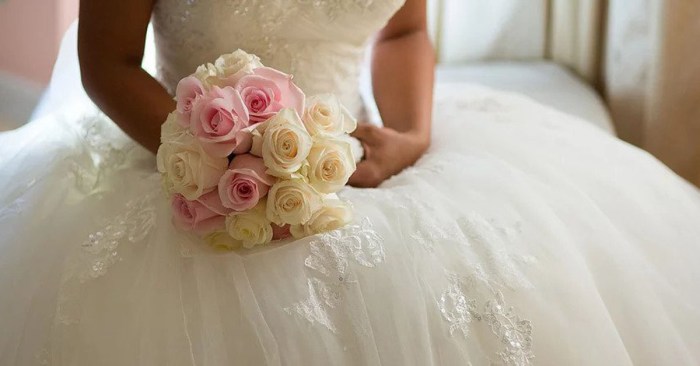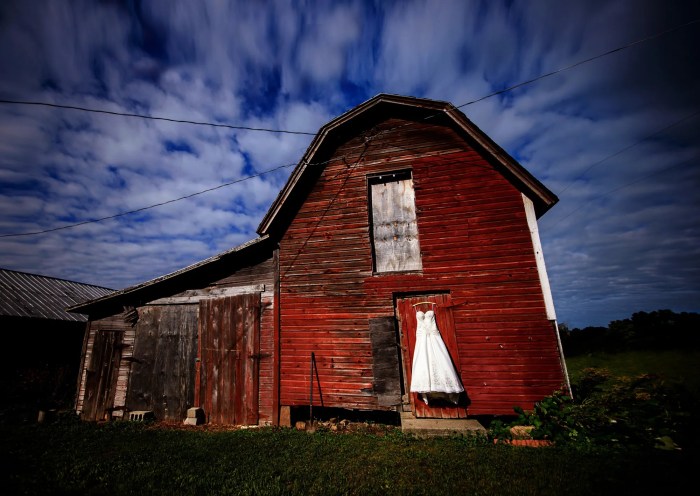Finding Reputable Dry Cleaners for Wedding Dresses: Dry Cleaners That Clean Wedding Dresses
Dry cleaners that clean wedding dresses – Choosing the right dry cleaner for your precious wedding dress is crucial. A reputable cleaner possesses the expertise and care needed to preserve your gown’s beauty and integrity. Consider these factors when making your selection.
Factors to Consider When Choosing a Dry Cleaner
Several key factors influence the selection of a reputable dry cleaner for your wedding dress. The following table Artikels these factors, their importance, assessment methods, and examples.
| Factor | Importance | How to Assess | Example |
|---|---|---|---|
| Experience with Wedding Dresses | High | Check website, testimonials, and directly inquire about their experience with various fabrics and embellishments. | “We have specialized in wedding dress cleaning for over 20 years and have cleaned hundreds of gowns made from various fabrics, including delicate lace and silk.” |
| Insurance and Guarantees | High | Verify insurance coverage for damage or loss. Ask about specific guarantees offered. | “We are fully insured against loss or damage and offer a guarantee against any cleaning-related issues.” |
| Cleaning Methods | High | Inquire about their cleaning methods (wet cleaning, dry cleaning, etc.) and whether they adapt their approach to the specific fabric and embellishments. | “We utilize a combination of wet cleaning and spot cleaning, depending on the fabric and level of soiling.” |
| Reputation and Reviews | High | Check online reviews on platforms like Yelp, Google Reviews, and WeddingWire. | “We consistently receive positive reviews praising our attention to detail and care for delicate fabrics.” |
| Pricing and Transparency | Medium | Obtain a clear price quote upfront, outlining all services and potential additional charges. | “Our standard cleaning package costs $X, which includes pre-treatment, cleaning, and pressing. Additional charges may apply for intricate beading or extensive stain removal.” |
Importance of Insurance and Guarantees, Dry cleaners that clean wedding dresses
Insurance and guarantees provide crucial protection against potential damage or loss during the cleaning process. Reputable cleaners should offer comprehensive insurance to cover unforeseen circumstances. A clear guarantee demonstrates confidence in their services and provides recourse if issues arise.
Questions to Ask Potential Dry Cleaners
Asking targeted questions helps assess a cleaner’s expertise and experience. Consider asking about their experience with specific fabric types, embellishments, stain removal techniques, and their handling of delicate materials. Inquire about their insurance policy and guarantee specifics, ensuring a transparent and reliable service.
Wedding Dress Cleaning Methods
Several methods exist for cleaning wedding dresses, each with its own advantages and disadvantages. The choice of method depends on the fabric, level of soiling, and embellishments present on the dress.
Comparison of Wedding Dress Cleaning Methods
- Wet Cleaning:
- Pros: Effective for removing various stains and soil, suitable for many fabrics.
- Cons: May cause shrinkage or damage to delicate fabrics if not done properly.
- Dry Cleaning:
- Pros: Gentler on delicate fabrics, effective for removing some stains.
- Cons: May not be as effective for removing stubborn stains, can leave residues on some fabrics.
- Spot Cleaning:
- Pros: Targets specific stains without affecting the entire garment, ideal for delicate embellishments.
- Cons: May not be effective for widespread soiling, requires expertise in stain identification and treatment.
Importance of Pre-Treatment for Stains
Pre-treatment is crucial for effectively removing stains before the main cleaning process. It prevents stains from setting and minimizes the risk of damage during cleaning. Proper pre-treatment significantly improves the chances of complete stain removal.
Step-by-Step Pre-Treatment Procedure
- Identify the type of stain.
- Test a cleaning solution on an inconspicuous area of the fabric.
- Gently blot (do not rub) the stain with the appropriate cleaning solution.
- Allow the solution to sit for a few minutes.
- Blot again with a clean, damp cloth.
- Repeat as needed until the stain is removed or lightened.
- Allow the treated area to dry completely before proceeding with the main cleaning process.
Potential Risks of Improper Cleaning Methods
Improper cleaning methods can lead to irreversible damage, including fabric shrinkage, color fading, damage to delicate embellishments, and weakening of the fabric structure. Using unsuitable solvents or harsh cleaning techniques can compromise the integrity of the dress.
Cost and Pricing Structures
The cost of wedding dress cleaning varies significantly depending on several factors. It’s essential to obtain clear pricing information upfront to avoid unexpected expenses.
Comparison of Dry Cleaner Pricing

Source: arthurcopelandcleaners.com
| Dry Cleaner | Price Range | Services Included | Additional Charges |
|---|---|---|---|
| ABC Cleaners | $300-$500 | Cleaning, pressing, minor stain removal | Extensive stain removal, bead repair, preservation |
| XYZ Dry Cleaning | $250-$400 | Cleaning, pressing | Stain removal, preservation, storage |
| 123 Bridal Cleaners | $400-$600 | Cleaning, pressing, stain removal, preservation | Intricate beadwork repair |
Factors Influencing Cleaning Costs
Fabric type, level of soiling, the presence of embellishments (beads, sequins, embroidery), and the complexity of stain removal significantly impact the overall cost. Delicate fabrics and intricate designs often require more specialized care and thus higher costs.
Hypothetical Pricing Structure
A hypothetical pricing structure for a wedding dress cleaning service might include a base price for standard cleaning and pressing, with additional charges for stain removal, preservation, and repairs to embellishments. For instance, a base price could be $350, with additional charges ranging from $50-$200 depending on the complexity of the work needed.
Preservation and Storage
Proper preservation and storage are essential to maintain the condition of your cleaned wedding dress. Following best practices ensures that your gown remains in pristine condition for years to come.
Best Practices for Storing a Wedding Dress

Source: alexandersdrycleaners.net
- Use an acid-free box or garment bag.
- Store in a cool, dark, and dry place.
- Avoid direct sunlight or exposure to moisture.
- Do not use plastic bags, as they can trap moisture and damage the fabric.
- Periodically check the dress for any signs of damage or discoloration.
Methods for Preserving a Wedding Dress
Acid-free boxes provide excellent protection against light, moisture, and pests. Archival-quality storage solutions offer the best long-term preservation, ensuring the dress remains in optimal condition for future generations.
Common Mistakes to Avoid When Storing a Wedding Dress
Avoid storing the dress in attics or basements due to temperature and humidity fluctuations. Do not use wire hangers, which can distort the shape of the dress. Never store the dress in plastic, as it can trap moisture and cause damage. Avoid exposure to direct sunlight or strong artificial light.
Customer Reviews and Testimonials
Customer reviews provide valuable insights into the quality of a dry cleaner’s services. Reading reviews allows you to gauge customer satisfaction and identify potential red flags.
Examples of Customer Reviews
| Review Source | Positive Aspects | Negative Aspects | Overall Rating |
|---|---|---|---|
| Yelp | Excellent service, attention to detail, careful handling of delicate fabrics | None | 5 stars |
| Google Reviews | Fast turnaround time, competitive pricing, friendly staff | Minor stain remained | 4 stars |
| WeddingWire | Exceptional quality of work, exceeded expectations | Slightly higher pricing than competitors | 4.5 stars |
Importance of Reading Online Reviews
Reading online reviews allows you to form an informed opinion about a dry cleaner’s services and reliability. Pay attention to both positive and negative reviews to gain a comprehensive understanding of the customer experience.
Customer Testimonial Template
“I was so impressed with [Dry Cleaner Name]’s service! My wedding dress was cleaned beautifully, and they took such care in handling such a delicate garment. I highly recommend their services to any bride!”
-[Bride’s Name]
Fabric Types and Cleaning Considerations
Wedding dresses are often made from a variety of fabrics, each with unique cleaning requirements. Understanding these requirements is crucial for preserving the dress’s integrity.
Common Fabric Types and Cleaning Methods
- Silk: Wet cleaning is generally preferred for silk, but requires careful handling to prevent damage. Dry cleaning may be an option for some silk fabrics, but always consult a specialist.
- Satin: Similar to silk, satin requires gentle handling and may be best cleaned using wet cleaning methods by a professional.
- Lace: Lace is delicate and requires specialized cleaning to prevent damage to the intricate details. Spot cleaning or gentle hand washing may be appropriate, depending on the type of lace.
- Tulle: Tulle is relatively easy to clean, often responding well to both wet and dry cleaning methods. However, professional cleaning is still recommended.
Challenges of Cleaning Delicate Embellishments
Cleaning dresses with beads, sequins, or embroidery requires extra care to prevent damage or loss of these delicate embellishments. Specialized techniques and tools are often needed to ensure the embellishments remain intact during the cleaning process.
Cleaning Different Types of Stains
Different stains require different treatment methods. Wine stains, for example, may require specialized stain removal techniques, while grass stains might respond to a combination of pre-treatment and professional cleaning. Makeup stains require careful attention to avoid damaging the fabric.
Alternatives to Traditional Dry Cleaning
Eco-friendly alternatives to traditional dry cleaning methods are gaining popularity. These methods offer a more sustainable approach to wedding dress cleaning while maintaining high quality results.
Environmentally Friendly Alternatives
Several eco-friendly alternatives exist, including wet cleaning with biodegradable detergents and solvents, and the use of ozone or carbon dioxide cleaning technologies. These methods reduce the environmental impact compared to traditional dry cleaning processes using harsh chemicals.
Comparison of Eco-Friendly and Traditional Methods
Eco-friendly options often have a similar effectiveness to traditional methods but may come with a slightly higher cost. The long-term environmental benefits often outweigh the slightly higher price, especially considering the longevity and sentimental value of a wedding dress.
Questions to Ask About Environmental Practices

Source: weddinggownpreservationkit.com
Inquire about the specific cleaning methods used, the types of detergents and solvents employed, and whether they have any waste reduction or recycling programs in place. Ask about their commitment to sustainability and environmental responsibility.
FAQ Explained
Can I wash my wedding dress at home?
Generally, no. Home washing methods risk damaging delicate fabrics and embellishments. Professional cleaning is strongly recommended.
How long does wedding dress cleaning take?
Turnaround time varies depending on the cleaner and the complexity of the dress, typically ranging from a few weeks to a month.
Finding a reputable dry cleaner experienced in handling delicate wedding gowns is crucial for preserving your special dress. The level of care required is similar to that needed for a particularly intricate garment, such as a stunning barbie dress for wedding , though on a much larger scale. Therefore, selecting a dry cleaner specializing in wedding attire ensures your dress receives the proper attention and cleaning it deserves, leaving it pristine for years to come.
What if my dress is damaged during cleaning?
Reputable cleaners offer insurance or guarantees to cover damage. Always inquire about their policies before entrusting your dress.
What’s the difference between wet and dry cleaning?
Wet cleaning uses water-based solutions, suitable for some delicate fabrics. Dry cleaning uses solvents, better for others. A professional will advise on the best method for your dress.
How much does it cost to preserve a wedding dress?
Preservation costs vary, depending on the chosen method (e.g., acid-free box, archival storage) and the cleaner’s pricing.






